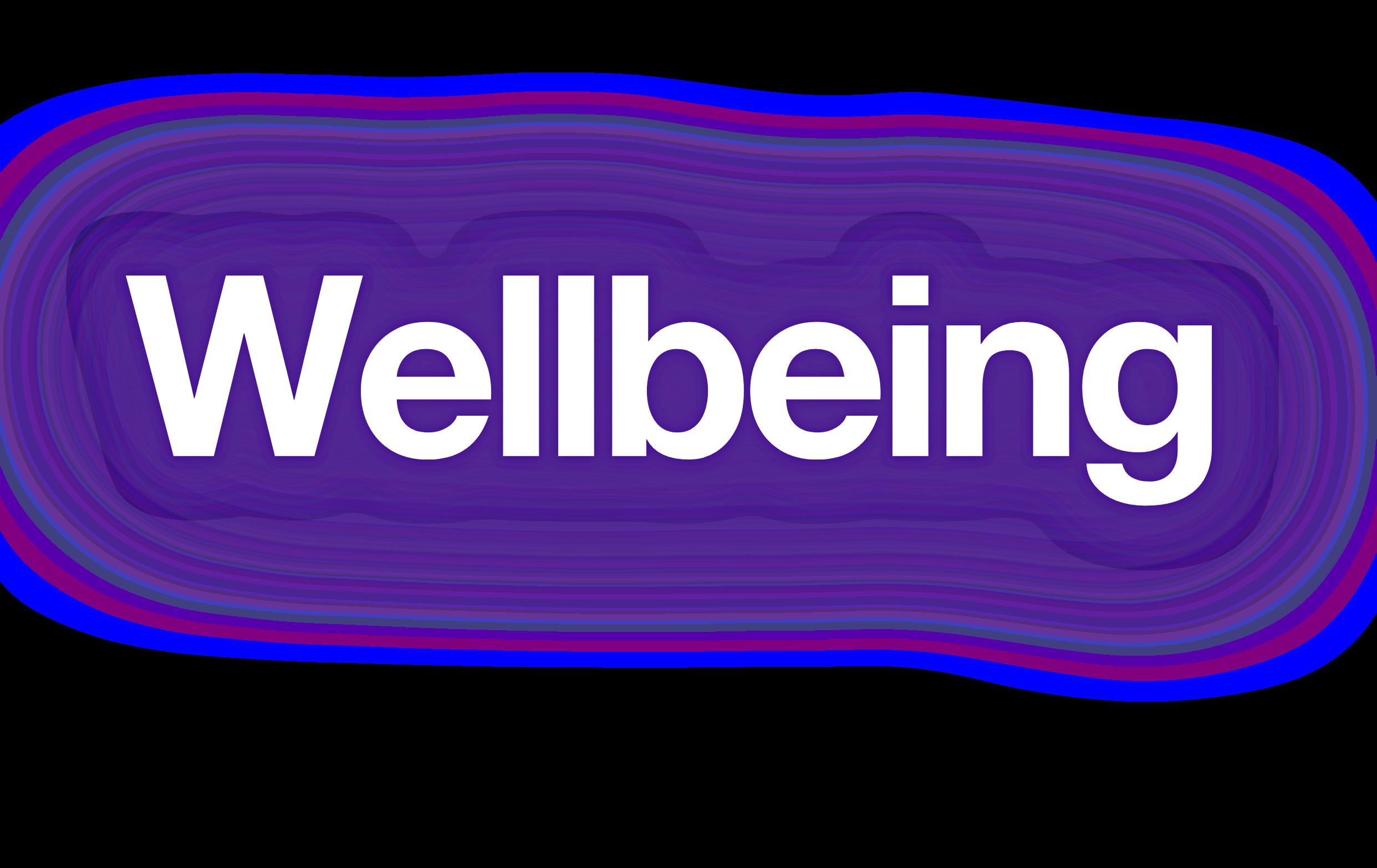















As we step into May, we focus on the powerful connection between movement, nature, and mental health. This month is dedicated to celebrating National Walking Month and Mental Health Awareness Week, encouraging everyone to take simple steps - literally and figuratively - toward a healthier mind and body.
Walking is one of the easiest ways to boost both physical and mental wellbeing. Spending time in nature has been shown to reduce stress, improve mood, and increase overall happiness. Whether it’s a short walk in your local park or participating in a Community Walk-A-Thon, every step counts.
Let’s take this opportunity to move more, embrace nature, and nurture our minds!

“It does not matter how slowly you go as long as you do not stop“

12-18th of May

Mental Health Awareness Week is an annual event in the UK, dedicated to raising awareness about mental health issues and promoting better mental wellbeing for us all.
Organised by the Mental Health Foundation, this week-long campaign takes place every May and brings together individuals, communities, and organisations to focus on improving our mental health.
Mental health is a crucial aspect of our overall wellbeing, yet it is often overlooked or stigmatised Mental Health Awareness Week aims to change this by encouraging open conversations about mental health and providing valuable information and resources. By raising awareness, we can help reduce the stigma associated with mental health issues, making it easier for people to seek help and support when they need it
There are many ways to participate in Mental Health Awareness Week and support the campaign:
One of the simplest yet most effective ways to get involved is to start a conversation about mental health Whether it’s with a friend, family member, or colleague, talking openly about mental health can help break down barriers and reduce stigma
Host an event in your community, workplace, or school to raise awareness about mental health This could be a physical activity event, a mental health workshop, or a fundraising activity Events like these provide a platform for people to come together, share their experiences, and support one another
Use social media to spread the word about Mental Health Awareness Week Share information, personal stories, and resources using hashtags like:

Consider donating to or volunteering with mental health charities Organisations like the Mental Health Foundation and Mind rely on public support to continue their vital work Your contributions can make a significant difference in the lives of those affected by mental health issues
Workplaces play a vital role in supporting mental health During Mental Health Awareness Week, employers can take steps to promote mental wellbeing among their staff This can include providing mental health training for managers, offering Employee Assistance Programmes (EAPs), and creating a supportive environment where employees feel comfortable discussing their mental health.
Mental Health Awareness Week is an important opportunity to focus on mental health and wellbeing By participating in this campaign, we can all contribute to creating a society where mental health is openly discussed and prioritised Whether through starting a conversation, organising an event, or supporting mental health charities, every action counts Let’s use this week to promote understanding, reduce stigma, and encourage everyone to take steps towards better mental health Remember, it’s time to talk and move for our mental health
This helps to reach a wider audience and encourages more people to get involved
Looking for a fun and active way to support a good cause?
Organising a Walk-A-Thon is a fantastic way to bring people together, encourage physical activity, and raise money for charity Adding a treasure hunt makes it even more exciting and interactive for participants of all ages. With just a small entry fee and a little planning, you can turn an afternoon walk into an unforgettable event for a great cause
So, gather your friends or coworkers, lace up your sneakers, and make a meaningful impact in your community!
Here’s How to Get Started:
Plan a walking path and incorporate a fun treasure hunt with clues and small prizes along the way
Promote the event through flyers, emails, or team meetings to boost participation and excitement
Collect a reasonable participation fee to help raise funds for your chosen charity
Gather small prizes or rewards for those who complete the hunt or find specific items the sion

It’s a fun and energising way to make a difference in your community while promoting health, teamwork, and generosity.

May is a special month for many reasons, but one of the most significant is that it’s Living Streets’ National Walking Month!
This annual event encourages people of all ages to embrace walking as a simple, effective way to improve their health, connect with their community, and reduce feelings of loneliness and isolation.

One of the greatest advantages of walking is that it’s easy to do, requires no special equipment, and is suitable for almost everyone, regardless of age or fitness level According to health experts, walking for just 30 minutes a day can significantly improve your physical health by reducing the risk of conditions like heart disease, stroke, type 2 diabetes, and high blood pressure Regular walking also helps to maintain a healthy weight, strengthens muscles and bones, and improves balance and coordination
One of the most immediate effects of walking is its ability to reduce stress. The rhythmic motion of walking, combined with the increased oxygen intake and release of endorphins, helps to calm the mind and relieve tension Studies have shown that walking in natural environments, such as parks, forests, or along water bodies, has a particularly soothing effect The concept of "green exercise" highlights that time spent in nature can lower cortisol levels, reduce blood pressure, and promote relaxation
When you’re feeling overwhelmed or anxious, taking a walk can serve as a quick and effective way to reset Walking allows you to step away from your immediate surroundings and break the cycle of stress It provides a mental breather, helping you to gain perspective on whatever is troubling you
For people suffering from anxiety or depression, walking can be a lifeline Physical activity, including walking, triggers the release of brain chemicals like serotonin, dopamine, and endorphins, which improve mood and reduce feelings of anxiety In fact, walking for just 30 minutes a day has been shown to have antidepressant effects, as it promotes positive feelings and helps counter negative thought patterns Walking also encourages mindfulness. The simple act of placing one foot in front of the other, noticing your breath, or paying attention to your surroundings can help anchor you in the present moment. This mindfulness aspect of walking can quiet the mind, reduce rumination (the repetitive focus on negative thoughts), and create a sense of calm
Living Streets’ National Walking Month is all about making walking a part of your daily routine Here are some ways you can get involved:
Challenge yourself to walk a certain number of steps each day or week Use a pedometer or a smartphone app to track your progress
Many communities have walking groups that meet regularly Joining one can provide motivation and make walking more enjoyable
If possible, try walking to work or school instead of driving or taking public transport. It’s a great way to start and end your day with some physical activity.
Use walking as an opportunity to explore your local area Discover new parks, trails, and local areas you haven’t visited before
Consider organising a walking event in your community. It could be a charity walk, a nature hike, or just a simple stroll.
National Walking Month is a great opportunity to celebrate the benefits of walking and encourage more people to walk regularly. Throughout the month, Living Streets will be organising various events and activities to promote walking
So, this May, lace up your walking shoes and get moving! Walking is a simple yet effective way to improve your health, connect with your community, and have fun
Let's make National Walking Month a month to remember!
Stress Reduction
Nature has a calming effect on the mind Spending time in green spaces, such as parks or forests, can lower levels of cortisol, the body’s primary stress hormone This can lead to reduced feelings of stress and anxiety
Improved Mood
Exposure to natural light and fresh air can boost serotonin levels, which are associated with feelings of happiness and well-being Activities like walking in the park, gardening, or simply sitting by a lake can significantly improve your mood
Enhanced Cognitive Function
Nature can also improve cognitive functions such as attention, memory, and creativity. Studies have shown that people who spend time in natural environments perform better on tasks requiring focus and problem-solving skills
Physical Health Benefits
Engaging in outdoor activities like hiking, cycling, or even a leisurely walk can improve physical health, which in turn supports mental health Regular physical activity is known to reduce symptoms of depression and anxiety
Ways to Connect with Nature
Daily Walks
Incorporate a daily walk into your routine. Even a short 15-minute walk in a nearby park can make a significant difference to your mental health. Pay attention to the sights, sounds, and smells around you to fully engage with the environment.
Useful Resources
Mind Mental Health Foundation

Gardening
Gardening is a therapeutic activity that allows you to connect with nature Whether you have a large garden or a small balcony, tending to plants can be a rewarding and calming experience
Outdoor Exercise
Take your exercise routine outdoors Whether it’s yoga in the park, a run along a nature trail, or a bike ride through the countryside, exercising in natural settings can enhance the benefits of physical activity
Nature Retreats
Plan regular nature retreats or day trips to natural settings. Spending extended periods in nature can provide a deeper sense of relaxation and rejuvenation.
Mindful Nature Observation
Practice mindfulness by observing nature Sit quietly in a natural setting and focus on the details around you the rustling of leaves, the chirping of birds, the flow of water This can help ground you in the present moment and reduce anxiety
Reconnecting with nature is a simple yet powerful way to improve mental health By making a conscious effort to spend more time outdoors and engage with the natural world, you can reduce stress, boost your mood, and enhance your overall wellbeing So, take a step outside, breathe in the fresh air, and let nature work its magic on your mind and body.
In today’s workplaces, diversity and inclusion are important for success. Many companies focus on culture, gender, and age diversity, but neurodiversity is often overlooked. Neurodiversity refers to the different ways people think and process information, including autism, ADHD, dyslexia, and other cognitive differences Supporting neurodivergent employees can bring new ideas, better problemsolving, and overall workplace improvement
Neurodivergent individuals have unique strengths that benefit organisations These may include strong attention to detail, creative thinking, excellent problem-solving skills, and analytical abilities
However, neurodivergent employees often face challenges like complex hiring processes, workplace rules designed for neurotypical behaviours, and a lack of understanding from colleagues and managers To support their success, workplaces need to make positive changes
Organisations can take the following steps to support neurodivergent employees:
Change traditional interviews to focus on skills rather than social abilities. Use practical tests or projects instead of standard interviews.
Work with groups like the National Autistic Society and Ambitious about Autism to attract and support candidates
The Equality Act 2010 requires employers to make reasonable adjustments for neurodivergent employees. Offer flexible work options, such as remote work or different working hours. Provide quiet spaces or allow noisecancelling headphones for employees sensitive to noise.
Use assistive technology to help different working styles
Educate staff on neurodiversity to improve understanding and reduce stigma.
Train managers to give feedback in ways that suit neurodivergent employees
Focus on employees' strengths rather than their challenges
Provide Mentorship and Support
Set up mentorship programmes where neurodivergent employees get guidance from experienced colleagues
Create support groups where employees can share experiences and advice
Encourage open discussions about neurodiversity to promote different ways of thinking and working
Businesses that invest in neurodiversity see real benefits, such as increased innovation, better employee retention, and access to a wider talent pool By creating an inclusive workplace, companies can help all employees do their best and build a reputation as a supportive employer
The UK government also offers support, such as the Access to Work scheme, which provides financial help for employers to make necessary adjustments for neurodivergent employees.
Supporting neurodiversity is not just about following UK laws or meeting social responsibility goals, it gives businesses a competitive edge Inclusive workplaces allow all employees to thrive, regardless of how they think and process information As awareness grows, companies that prioritise neurodiversity will lead the way in innovation, productivity, and job satisfaction in the UK workforce





Regular physical activity is key to maintaining overall health, wellbeing, and fitness It supports heart health, strengthens muscles and bones, lowers the risk of chronic illnesses, and enhances your mood
This May, commit to moving more each day
Build a consistent routine and elevate your fitness by weaving physical activity into your daily life
How to do it?
Find activities you enjoy: Choose activities that you find fun and engaging, such as walking, running, swimming, dancing, cycling, or playing sports
Set realistic goals: Start with achievable goals and gradually increase the intensity or duration of your workouts
Make it a habit: Incorporate physical activity into your daily routine by taking short breaks to move around, using the stairs instead of the elevator, or walking to nearby destinations
Find a workout buddy: Exercising with a friend or partner can make it more enjoyable and help you stay motivated
Track your progress: Keep a record of your workouts to monitor your progress and celebrate your achievements
Day 1: Start with a 10-minute walk or light stretching to ease into the challenge
Day 2: Aim for 15 minutes of moderate exercise, like brisk walking or cycling
Day 3: Try a new activity (yoga, dancing, or cycling) for at least 20 minutes
Day 4: Stretch for 10 to15 minutes after waking up and before bed
Day 5: Complete 20 minutes of strength training (bodyweight exercises or resistance bands)
Day 6: Take a 30-minute walk/ hike in nature
Day 7: Rest and recover with light stretching or a gentle yoga session


Day 8: Start incorporating 5 to10 minutes of core exercises (planks, crunches) into your day
Day 9: Try interval training: alternate between 1 minute of high-intensity exercise (jumping jacks, sprinting) and 2 minutes of moderate activity for 20 minutes
Day 10: Walk or cycle to work or take the stairs whenever possible to sneak in extra activity
Day 11: Perform a 30 minute strength training session focusing on arms and upper body
Day 12: Engage in a full-body workout using bodyweight exercises like squats, lunges, and pushups for 20 minutes.
Day 13: Try a new activity like swimming, hiking, or a fitness class you’ve never done before.
Day 14: Do an active recovery day with gentle stretching, walking, or foam rolling
Day 15: Increase your workout time to 40 minutes with a mix of cardio and strength training
Day 16: Try a HIIT (High-Intensity Interval Training) session, alternating between intense bursts of exercise and short recovery periods
Day 17: Focus on lower body strength with exercises like squats, lunges, and step-ups
Day 18: Take a longer walk or hike (at least 45 minutes) to challenge your endurance
Day 19: Complete a 30 minute bodyweight circuit workout (e.g., push-ups, planks, mountain climbers).
Day 20: Try a flexibility focused workout (yoga or Pilates) to lengthen your muscles.
Day 21: Take an active rest day with light stretching.
Day 22: Set a 10,000-step goal today and track your steps using a fitness tracker or phone app
Day 23: Focus on upper body strength (pushups, dips, planks) for 30 minutes
Day 24: Engage in 45 minutes of moderate exercise, like swimming, cycling, or jogging
Day 25: Try an at-home circuit workout with minimal equipment (resistance bands, dumbbells, or household items)
Day 26: Go for a 45-minute walk or run at a pace that challenges you
Day 27: Complete a 30-minute mobility and flexibility session, incorporating stretching or yoga.
Day 28: Choose your favourite workout from the month and repeat it to see how far you've come.
Useful Resources
NHS NHS Workout Videos FitOn App Mind Pump Podcast

Day 29: Reflect on your progress over the month How has your energy, strength, and mood improved?
Day 30: Celebrate by doing a fun group activity, like a bike ride, team sport, or walk with friends
Day 31: Set new movement goals for the future (e g , continue walking daily, increase strength training sessions) and create a plan to maintain your activity levels
Every day, incorporate mini-movement breaks into your routine Set a timer for every hour, and do 1 to 2 minutes of stretching, squats, or walking to keep yourself active throughout the day
This is a refreshing and satisfying as a dessert This vibrant fruit salad is easy to make and perfect for any occasion!
Ingredients
For the Salad:
2 cups strawberries, hulled and sliced
2 cups blueberries
2 cups pineapple, diced (fresh or canned in juice)
2 cups kiwi, peeled and sliced
2 cups mango, diced
2 cups grapes, halved
1 banana, sliced
1 orange, segmented (optional)

For the Honey-Lime Dressing
3 tablespoons honey or maple syrup (for a vegan option)
2 tablespoons fresh lime juice
Zest of 1 lime
A pinch of salt (optional)

1. Prepare the Fruit. Wash and slice the strawberries, blueberries, pineapple, kiwi, mango, grapes, and banana. If using, segment the orange as well. Combine all the prepared fruits in a large mixing bowl
2 Make the Dressing In a small bowl, whisk together the honey (or maple syrup), fresh lime juice, lime zest, and a pinch of salt if desired until well combined
3 Combine Drizzle the honey-lime dressing over the fruit salad Gently toss the fruit to coat evenly with the dressing Be careful not to mash the softer fruits
4 Chill and Serve Let the fruit salad sit for about 10-15 minutes to allow the Flavors to meld Serve chilled or at room temperature

Feel free to swap in your favourite fruits or seasonal options. Other great additions include pomegranate seeds, raspberries, or peaches.
This fruit salad is best served fresh, but you can store leftovers in an airtight container in the refrigerator for up to 2 days Keep in mind that some fruits, like bananas, may brown over time
For an extra touch, sprinkle some chopped fresh mint over the salad before serving
This Healthy Fruit Salad with Honey-Lime Dressing is not only refreshing and sweet but also packed with vitamins and antioxidants, perfect for a guiltfree dessert!
Tag us @tachealtchare

TAC Healthcare’s Neurodiversity Support Service is tailored for organisations aiming to embrace the unique strengths of neurodivergent individuals.
Our services promote innovation, enhance employee wellbeing, and foster an inclusive, supportive workplace culture.

Boost Employee Morale
Valuing neurodiversity shows your organisation's commitment to inclusion, boosting employee satisfaction and retention.

Drive Innovation & Creativity
Neurodivergent individuals bring unique perspectives and problem-solving skills, driving innovation and setting your company apart.
Enhance Company Reputation
Enhance Workplace Inclusion


Promoting diversity and inclusion enhances your reputation, attracting top talent and socially responsible clients

Customised Screening & Assessments
Workplace Needs Assessments
Ongoing Support & Resources
Professional Diagnosis Services
Workplace Training Programmes
Confidential Medication Support
We focus on providing essential diagnoses and ongoing support to ensure that every employee feels valued and empowered to reach their full potential

We also extend our support to employees’ families, offering early developmental screenings and resources for neurodivergent children.
Our tailored assessment services aim to support not only adult employees but also their children, ensuring a holistic approach to family wellbeing and workplace inclusion.
Holistic Family Support
Workplace and Family Balance
Early Identification and Customised Interventions

Comprehensive Development Screenings
Parent and Caregiver Support
Individual Diagnostic Service Ongoing Monitoring and Support








By downloading the calendar you'll also receive monthly updates on our new magazine issues, packed with fresh insights and actionable tips to help your workforce thrive
✅ Support Wellbeing and Work-Life Balance
✅ Enhance Employee Engagement
✅ Promote Inclusivity & Diversity


Our Travel Health specialists are Members of the Faculty of Travel Medicine of the Royal College of Physicians and Surgeons of Glasgow (MFTM). Cumulatively, the team have over 20 years’ experience in supporting our corporate and private travellers.
At TAC Healthcare, we provide comprehensive immunisation services that cover both workplace requirements and travel-related needs, ensuring your staff remain protectedwherever their work takes them




We utilise TRAVAX, an interactive NHS website that offers up-to-date health information for UK healthcare professionals. It provides the latest guidance on preventing illness and maintaining health while traveling abroad, ensuring that we deliver the most current healthcare advice during consultations.
By leveraging up-to-date guidance from the Green Book and TRAVAX, as well as our iOH system for scheduling and record management, we deliver timely, efficient, and evidence-based support.
Gain invaluable insights and expert recommendations to ensure your health and wellbeing during your next trip
Comprehensive health checks before your trip
TRAVAX also offers traveler advice sheets tailored to the general public, designed to be clear, concise, and easily understandable. The platform is continually maintained and updated by the Travel and International Health Team at Public Health Scotland (PHS). Contact your account manager for more information.

Guidance and administration of vaccines relevant to each journey’s risks.
Or, if you’re new to TAC Healthcare, contact us on 0333 014 3488 or at businessdevelopment@tachealthcare com

